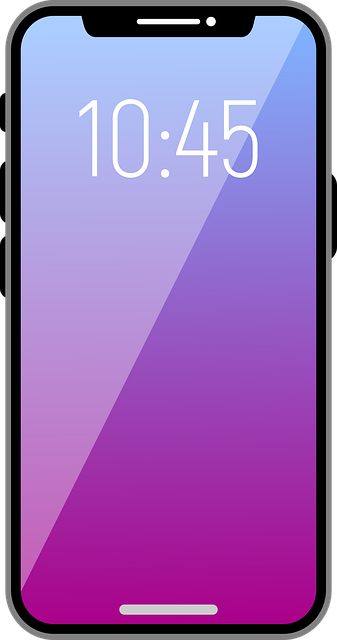Spam calls in West Virginia can be legally halted by residents engaging Spam Call Law Firms or Spam Call Lawyers specializing in the Telephone Consumer Protection Act (TCPA). Key steps include identifying and documenting spam patterns, registering on Do Not Call lists, filing complaints with relevant authorities, and consulting legal experts for guidance and action. By combining these strategies, West Virginia residents can effectively reduce unwanted spam calls.
In West Virginia, understanding and effectively dealing with spam calls is crucial due to their legal ramifications under the Telephone Consumer Protection Act (TCPA). This comprehensive guide explores best practices for reporting spam calls, empowering West Virginians to protect themselves. Learn how to identify and document these calls, follow steps outlined by local laws, and understand your options with specialized law firms. Additionally, discover preventive measures to fortify against future spam calls, ensuring a quieter, more secure communication environment. Key focus areas include strategies for stopping spam calls in West Virginia and the role of expert lawyers and law firms in navigating TCPA cases.
Understanding Spam Calls and Their Legal Ramifications in West Virginia
Spam calls, often characterized by unsolicited or unwanted telephone marketing messages, are a pervasive issue nationwide, including in West Virginia. While many may consider them a mere nuisance, these calls can have significant legal ramifications. The Telephone Consumer Protection Act (TCPA) is a federal law designed to curb such practices, and its provisions are strictly enforced in West Virginia. Violations can result in substantial monetary penalties for businesses and individuals alike.
Understanding how to stop spam calls is crucial for residents of West Virginia. If you’ve received unwanted calls promoting products or services, there are steps you can take. Engaging the services of a reputable spam call law firm in West Virginia, complete with experienced spam call lawyers, is one effective method. These professionals are knowledgeable about the TCPA and can guide you through the process of filing a complaint and seeking legal redress if necessary.
Identifying and Documenting Spam Calls: What to Look For
Identifying and documenting spam calls is a crucial step in navigating the complex landscape of phone scams. When a call is suspected to be spam, it’s essential to look for specific patterns and red flags. These may include unknown or out-of-state area codes, repetitive or automated voice messages, and calls with no identifiable purpose other than to sell a product or service. Documenting these interactions involves noting down the caller ID, timestamps, and any recorded details of the conversation. This information is invaluable for legal actions and can serve as evidence when dealing with a spam call law firm or spam call lawyers in West Virginia.
For residents of West Virginia looking to stop spam calls, understanding these identifying factors is key. If a call meets these criteria, it’s recommended to document and record the interaction while respecting local laws regarding recording conversations. This evidence can be used when filing complaints with communication regulators or taking legal action under the Telephone Consumer Protection Act (TCPA). Engaging the services of a reputable spam call law firm in West Virginia that specializes in TCPA litigation is a proactive step to stop spam calls and protect one’s rights.
Reporting Spam Calls: Steps to Take According to West Virginia Laws
Reporting spam calls is a crucial step in protecting yourself and your loved ones from unwanted solicitation. According to West Virginia laws, residents have the right to take action against persistent or unauthorized telephone marketing calls, also known as spam calls. The first step is to identify the call as spam; look for patterns such as repeated unknown numbers, calls at inconvenient times, or messages that promote products or services in a deceptive manner. Once identified, you can take several measures.
One effective way to stop spam calls is by registering your number on the National Do Not Call Registry. This federal list restricts telemarketers from calling registered numbers for marketing purposes. Additionally, West Virginia has its own Do Not Call List, which allows residents to block local spam calls. You can file a complaint with the West Virginia Division of Consumer Protection if you suspect illegal or harassing calls, and consider consulting a law firm specializing in telecom laws, such as those experienced in TCPA (Telemarketing Consumer Protection Act) cases. Engaging lawyers skilled in these laws can help navigate the legal process to stop spam calls effectively.
The Role of a Lawyer or Law Firm Specialized in TCPA Cases
When dealing with persistent spam calls in West Virginia, one effective strategy is to consult a lawyer or law firm specializing in Telephone Consumer Protection Act (TCPA) cases. These legal experts are well-versed in how to stop spam calls and can provide guidance tailored to your specific situation. They understand the intricate details of the TCPA, which makes them invaluable assets in navigating the legal aspects of stopping unwanted phone marketing.
A Spam call law firm West Virginia or lawyer for TCPA West Virginia can assist you in understanding your rights under the TCPA and taking appropriate actions. They can help with filing complaints against spam callers, seeking damages if warranted, and ensuring that your communications are handled in compliance with privacy laws. Their expertise in this area is crucial when it comes to effectively managing and preventing future spam calls, especially for businesses or individuals concerned about how to stop spam calls West Virginia.
Preventive Measures: Fortifying Against Future Spam Calls
To prevent future spam calls in West Virginia, individuals can take several proactive measures. Start by understanding and familiarizing yourself with the Telecommunications Consumer Protection Act (TCPA), a federal law that restricts unwanted calls, including spam. Keep your contact information private; don’t share it unless necessary, and be cautious when providing it online. Consider registering your number on the National Do Not Call Registry, which can significantly reduce marketing calls. Many phone service providers also offer call-blocking features or apps designed to filter out spam.
Additionally, staying informed about local laws and regulations regarding spam calls is crucial. In West Virginia, there are specific rules and penalties for violators, so consult a spam call law firm or spam call lawyers in the state who can provide guidance on protecting your rights. Regularly review privacy settings on social media and other digital platforms to limit access to your contact details. By combining these strategies, West Virginia residents can better safeguard themselves against spam calls and enjoy more peaceful communication.






